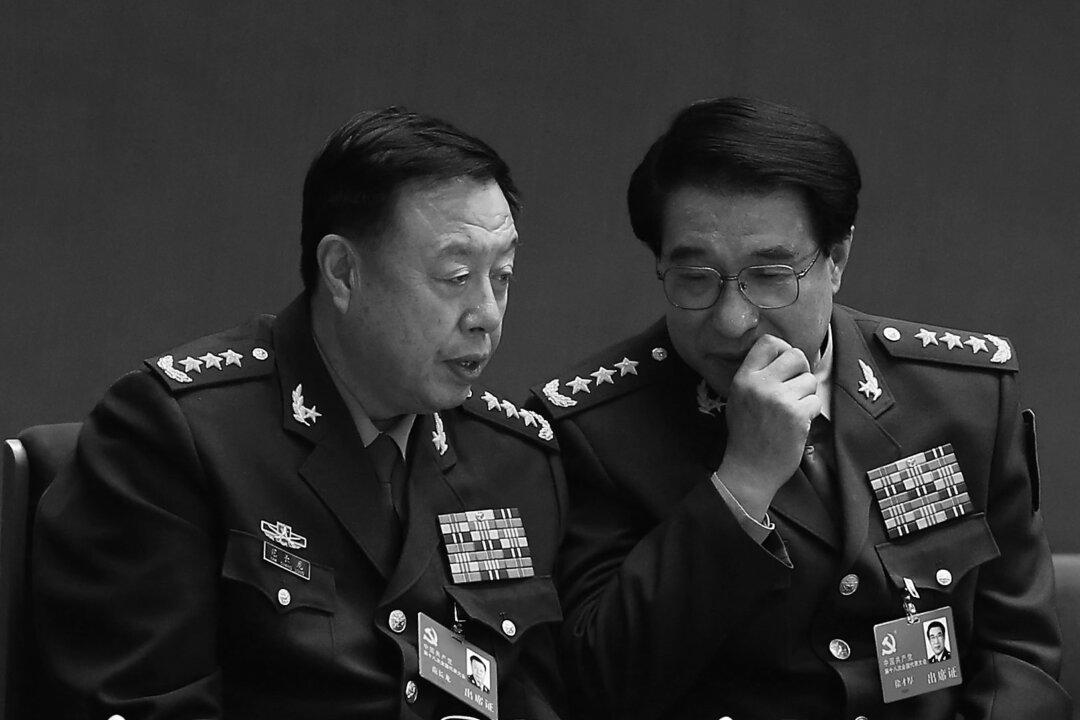Xu Caihou, formerly the second most powerful man in the Chinese military, and widely understood to be disloyal to Communist Party leader Xi Jinping, is dead, according to state media.
Xu’s death, from bladder cancer, does not come as a great surprise. In March last year, when he was formally placed under investigation for bribery, was said to be in hospital suffering from the disease. On March 16 Xinhua News Agency, the state mouthpiece, reported that his cancer had metastasized and shut down all organ function, leading to his death the night before.
The public political destruction of General Xu was one of the most remarkable events in the Chinese Communist Party over the last several years, even during a period where high-profile purges and takedowns had become almost daily occurences. Along with Xu there was the purge of former security boss Zhou Yongkang, another giant in the Party that had once been considered untouchable.





